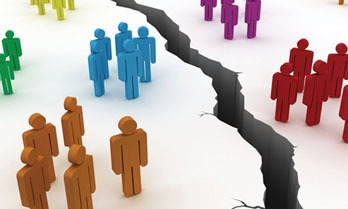Is Pop Culture Good For You?
In his TED Talk, Pop Culture is Dead!, Phil Miller (2015) defined pop culture as being “When certain ideas, interests or choices reach a certain critical mass within a society, they become widespread and proliferate through the society”. This definition, I believe, is why pop culture and social media are inherently good at their core. Throughout history, there have been many issues with communication over long, or even short distances. With social media, information can be communicated so quickly to so many people. This can be helpful for world news, or, as Miller was likely alluding to in this definition, more casual, cultural things. Ideas and interests can be shared so easily, and eventually can dominate social media. While Miller seems to see this as almost the opposite of how pop culture is “supposed to” be created, or at least has been in the past, I think it is important.
We live in a world where people are so easily divided. “Politics divide us, religion Divides us, social issues divide us, cultural beliefs and values divide us,” says Alexandre O. Philippe (2013) in his Ted Talk. I believe, as does Philippe, that pop culture is something that brings us together. When something like a simple meme or song dominates social media and the world, it becomes something that connects us all. Something that seems so simple and meaningless can be that connection, that thing that brings the world together when so many things around us tear us apart. That is meaningful and important.
Pop culture can also have this similar effect when it comes to things that are more objectively important. When a disaster happens somewhere in the world, the internet is instantly flooded with news and information on how to support the cause. When more people are informed, more people are then able to take action and help. Malcolm Gladwell (2010) stated in his article, Small Change: Why the Revolution will not be Tweeted, “ It makes it easier for activists to express themselves, and harder for that expression to have any impact” (p. 327). I don’t know that I would fully agree with this statement. Yes, of course, social media and pop culture allow for more free expression, whether it be positive or negative. I think anything that allows people to be more free and open about themselves, their beliefs, and their ideas is a good thing. I don’t believe his point that social media makes this expression less impactful is fully true. His statements that “social media activism” is used as a sort of easy way out, or a way of giving the appearance of activism without actually doing or sacrificing anything are true in many cases. However, as stated above, this is not a problem with social media and pop culture, it is the issue in how people use it, and the power it gives them. Pop culture has many times been used to rally people together, and organize real, personal and active events. Maybe instead of going after social media itself, we should be encouraging people to use it to its full potential rather than a way of being lazy.



Comments
Post a Comment